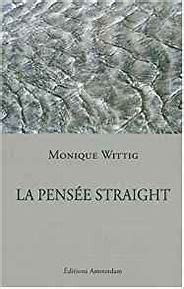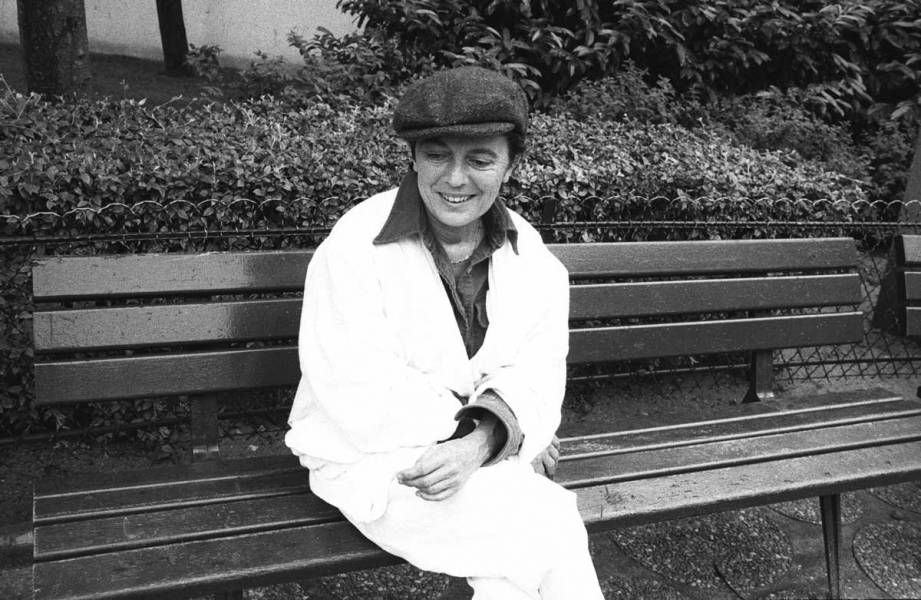Born in Haut-Rhin, France in 1935, Monique Wittig was a feminist way ahead of her times. A central figure in the lesbian and feminist movements in France, she was the founding member of the Gouines rouges (Red Dykes), the first lesbian group in Paris. She gained international recognition for her many novels and theories which explored the interconnectedness and intersection between lesbian orientation, feminism and materialism. Wittig also led the Mouvement de libération des femmes which advocated against the patriarchal society in France and for women’s bodily autonomy.
A Materialist Account of Gender
In her essay One Is Not Born A Woman, Monique Wittig interrogates gender. The essay begins with “A materialist feminist approach to women’s oppression destroys the idea that women are a ‘natural group’: a racial group of a special kind, a group perceived as natural, a group of men considered as materially specific in their bodies.” Wittig tries to highlight the importance of questioning and deconstructing the concept and origin of womanhood using a material perspective. She argues that the idea and classification of women as a natural group is the base of the further oppression women deal with.
The existence of sexes and the existence of slaves and masters proceed from the same belief, there are no slaves without masters and there are no women without men.
Wittig states that the labelling of a group of people as “women” is a means of naturalizing and mystifying an exploitative social relation. By rejecting the idea that womanhood is a matter of bodily characteristics, Wittig argues that the idea of a natural group of women on the basis of body is a result of social oppression.
The fact that most people take gender for granted and refuse to look at it as a social construct, leaves them blind to the material conditions of women’s oppression and further reinforces it. Due to the textbooks, we read at school and social relations at home, we are conditioned to believe that the differences between men and women are biological and scientific and of course, the school teaches us never to question science. The word of science is “FINAL”.

The Ideology of Sexual Difference
Monique Wittig takes her argument further in her essay The Category of Sex. In this essay, Wittig begins to refer to this belief in natural differences as the ideology of sexual difference. This ideology operates to justify the exploitation of women. She writes “the ideology of sexual difference functions as censorship in our culture by masking, on the ground of nature, the social opposition between men and women. Masculine/feminine, male/female are the categories which serve to conceal the fact that social differences always belong to an economic, political, ideological order. Every system of domination establishes divisions at the material and economic level. Furthermore, the divisions are abstracted and turned into concepts by the masters… for there is no sex. There is but sex that is oppressed and sex that oppresses. It is the oppression that creates sex and not the contrary”.
Also read: Why Consumerist ‘Feminism’ Fails Us: Understanding Capitalist Culture
By reconceptualizing sex from a natural grouping into a relationship to the systemic oppression of women, Wittig displays the gender categories as class divisions. What Wittig seeks to do is demonstrate that there is no natural basis for this oppression. Instead, Wittig suggests that there is a functional class struggle between men and women, and that this struggle emerges from a specific form of economic exploitation of women by men. She summarizes this by writing that the existence of the sexes and the existence of slaves and masters proceed from the same belief, and that there are no slaves without masters as there are no women without men.
Our fight aims to suppress men as a class, not through a genocidal, but a political struggle. Once the class ‘men’ disappears, ‘women’ as a class will disappear as well…”
After questioning the material foundation of gender, we might ask: what is a woman? The answer that Wittig provides us is that “a woman is a member of the class of women, which is the class that is oppressed and exploited by the class of men.” The attempt at using science in order to justify the biological inferiority of women and hence it is men who must strive to provide for the family while women stay at home also denies the labour done by women at home, not considering it of economic importance. Hence, we are left with the brutal fact that gender itself is a class relationship.
The Heterosexual Contract

Through the concept of “The Heterosexual Contract”, Wittig begins to develop heterosexuality as a material base for gender. How the body of women is controlled. The heterosexual pairing of man and wife exists as a principle of social organization for the subjugation of women. While the realities of marriage are forever evolving, it has historically functioned to reduce a woman to a man’s property, to force women to undertake forms of domestic labour not considered important economically and to make women sexually available to men through the basis of a contract. As such, there is a division of labour which underlies gender. In addition, gender has functioned to create a different relationship to property, It is precisely this economic relationship which the ideology of sexual difference emerges from, is meant to reinforce, and obscures.
Also read: A Brief Summary Of The Second Wave Of Feminism
Annihilation of Gender
Through her various works and essays, Wittig highlights the need to do away with the concept of gender in order to end the oppression of women. For Wittig, the goal of women’s liberation is achieved through the annihilation of gender as a social construct, the social construct that perpetuates the economic freedom and social behaviour by controlling the way women function in society. Wittig explains, “Our fight aims to suppress men as a class, not through a genocidal, but a political struggle. Once the class ‘men’ disappears, ‘women’ as a class will disappear as well…” Women’s liberation requires the abolition of the conditions and institutions which produce womanhood in the first place. Women’s liberation requires women to organize as a class for the abolition of the class of woman. To create a society where everyone has bodily autonomy and thus no constructs to restrict freedom.
References
Featured Image Source: Monique Wittig
About the author(s)
Rashad is an over enthusiastic football fan who wishes to leave behind a more equal and human world. He also likes to think he's good at dancing.




